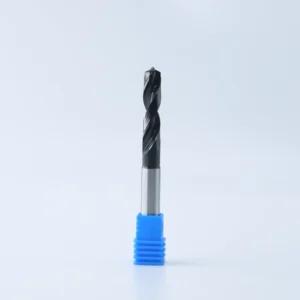For procurement managers and bulk buyers in manufacturing, the cost of drill bits is more than a line item—it’s a recurring drain on budgets. Many businesses report spending over $1,200 monthly replacing low-quality tools that fail under pressure. The solution? High speed steel (HSS) drill bits used for alloy drilling, engineered to slash costs while boosting productivity. Here’s how this critical tool upgrade can transform your operations.
1. The True Cost of Cheap Drill Bits: A $1,200/Month Mistake
Low-cost drill bits often backfire. While they may save $0.50 per unit upfront, their short lifespan leads to frequent replacements, downtime, and wasted labor. For example, a metal fabrication shop drilling 8,000 holes monthly on stainless steel reported spending $1,500/month on replacements before switching to HSS drill bits engineered for alloy drilling. Post-switch, costs dropped to $550/month—a 63% reduction.
Industry data reinforces this: businesses using subpar tools lose up to 30% of their drilling time to tool changes and machine recalibration. In contrast, high-performance HSS tools for alloy applications reduce replacement frequency by 70%, according to the International Journal of Advanced Manufacturing Technology.
2. Extended Lifespan: 10x Durability for Long-Term Savings
High speed steel drill bits used for alloy drilling outperform standard carbon steel bits in lifespan and resilience. Blending tungsten, molybdenum, and vanadium, HSS retains hardness even at temperatures exceeding 600°F (315°C). This heat resistance prevents premature dulling, allowing these bits to last up to 10x longer.
A case study from an aerospace supplier showed that replacing carbon steel bits with cobalt-enriched HSS tools for tough alloys reduced annual tool purchases from 12,000 units to 1,200—saving $48,000/year. For wholesalers, this longevity means fewer restocking cycles and higher customer satisfaction.
3. Precision and Speed: Cutting Through Alloys 50% Faster
Time is money. HSS drill bits designed for alloy drilling cut through hardened materials like titanium and Inconel at speeds 25–50% faster than conventional bits. Their sharp edges and optimized flute designs reduce friction, enabling smoother cuts and fewer errors.
For instance, an automotive parts manufacturer reduced drilling time per component from 12 minutes to 6 minutes by adopting high-speed steel bits for heat-resistant alloys, doubling daily output. With labor costs averaging $50/hour, this efficiency gain saved $4,800 weekly.
4. Energy Efficiency: Lower Power Consumption, Reduced Machine Wear
Cheap drill bits strain machinery. Excessive heat and friction force motors to work harder, spiking energy bills and accelerating wear. HSS alloy drilling tools mitigate this: their heat-resistant properties reduce friction by up to 40%, lowering energy consumption by 15–30%.
A CNC machining center reported a 22% drop in monthly energy costs after switching to HSS tools for high-temperature alloys. Additionally, reduced machine maintenance costs added $12,000 in annual savings.
5. Versatility: One Tool for Multiple Materials
High speed steel drill bits used for alloy drilling aren’t limited to metals. They excel on plastics, composites, and wood, making them ideal for wholesalers serving diverse industries. A hardware distributor reduced SKUs by 60% by replacing material-specific bits with multi-purpose HSS tools, simplifying inventory and cutting logistics costs by $18,000/year.
Proven ROI: Real-World Savings from Industry Leaders
A construction equipment manufacturer drilling 15,000 holes/month on hardened steel saved $1,100/month by adopting HSS cobalt drill bits for alloy applications. Productivity rose 35%, and machine downtime fell by 50%. Similarly, a tools wholesaler reported a 150% ROI within 10 months due to reduced returns and repeat orders.
Conclusion: A Smart Investment for Cost-Conscious Buyers
Switching to high speed steel drill bits used for alloy drilling isn’t just an upgrade—it’s a financial safeguard. With proven savings of 50–70% on tool costs, 30% faster production, and reduced machine wear, these tools deliver ROI that cheap alternatives can’t match. For procurement teams and wholesalers, the choice is clear: prioritize long-term value over short-term savings.
By investing in HSS technology, businesses transform a recurring expense into a competitive advantage—one hole at a time.


